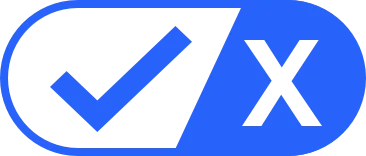Credit card debt can become a burden for many homeowners. In recent years, consumer spending has grown to its greatest levels ever. In 2018, Experian reported that credit card debt in the U.S. hit a high of $834 billion and personal loan debt totaled over $291 billion. Overall, by the end of 2018 consumer debt reached $13.3 trillion. For homeowners trying to eliminate as much non-mortgage debt as possible, debt consolidation is possible via a cash-out refinance loan or a home equity loan. Interest rates in recent years have remained at historic lows, and many homeowners have the opportunity to dramatically
There are a few ways a homeowner can leverage the equity of their home for debt consolidation. As you pay down your mortgage, you build equity in your home. A home equity loan can provide borrowers with large sums of money and may be easier to get approved for when compared to various other loans. Home equity loans can help borrowers tap into liquid assets that can be used to pay down credit card or other non-mortgage related debt that often comes with high interest rates and fees.
In addition to a home equity loan, a homeowner can refinance their current mortgage with a cash-out refinance loan. This is another option that allows borrowers to capitalize on their equity and the investment they’ve already made in their home. Often, cash out refinance loans can also allow borrowers to adjust their loan terms for the better.
Whether a homeowner opts for a home equity loan or a cash-out refinance, typically they are able to enjoy the benefits of a lower interest rate and more affordable monthly payments compared to what most credit cards or personal loans require. Both of these loans provide homeowners the opportunity to alleviate some of that financial burden that non-mortgage debt can become.
Frequently Asked Questions
What Is the Difference Between a Refinance and a Home Equity a Line of Credit?
The key difference between a refinance and a home equity line of credit is that a home equity loan is a second mortgage. This loan exists in addition to the current mortgage on a home. After loan approval, the borrower would be responsible for two different payments. However, when a homeowner completes a refinance loan, they essentially exchange their current mortgage for a new mortgage and often adjust their rate and term accordingly. In a cash-out refinance, the new mortgage amount is greater than the borrower amount for the previous mortgage balance. The difference is then paid to the homeowner in cash.
How Can I Use a Home Equity for Debt Consolidation?
Home equity loans use the property of a current mortgage as loan collateral, meaning this loan type allows a homeowner to borrow against the established value in their home. The funds borrowed are derived from the home’s equity, which is the amount a home is currently worth subtracted from the amount you still owe on it. The proceeds from a home equity loan are given to the borrower as a lump sum. This permits the homeowner to pay off credit cards and other non-mortgage debt quickly, but pay back the loan at a lower interest, over a pre-determined duration of time via the equity loan. Usually, lenders have set minimum and maximum amounts for how much equity must be borrowed for a home equity loan to be approved.
How Can I Use a Refinance Mortgage Loan for Debt Consolidation?
A refinance can be a helpful tool for homeowners seeking an option to not only gain access to funds with an affordable interest rate, but also for homeowners interested in changing the rate or term of their current mortgage. A cash-out refinance would replace a homeowner’s current mortgage; it is not a second mortgage. This loan type enables a homeowner to adjust their loan rate and term. The total borrowed amount for a cash-out refinance loan is larger than the total of the current mortgage. The difference between the larger mortgage loan and smaller mortgage loan amounts is then received as cash and the homeowner can use those funds for various debt consolidation. Usually, the interest rate of a cash-out refinance is much lower than average credit card debt and therefore provides a savings opportunity for homeowners. An additional benefit of using a cash-out refinance loan for debt consolidation is that homeowners who had private mortgage insurance (PMI) included in the cost of their original mortgage can now eliminate that added fee.
Can a Second Mortgage Be Used for Debt Consolidation?
A second mortgage can be used for debt consolidation. A home equity loan or home equity line of credit are both considered second mortgages because unlike a refinance mortgage loan, neither of these loan types replace the existing mortgage loan on the property. The funds received as proceeds from a second mortgage, such as a home equity loan, can be used toward debt consolidation.
Debt consolidation via a second mortgage is not limited to resident properties. Owners of investment properties can also evaluate the equity in their property and refinance to access funds. Learn more about refinancing an investment property.




